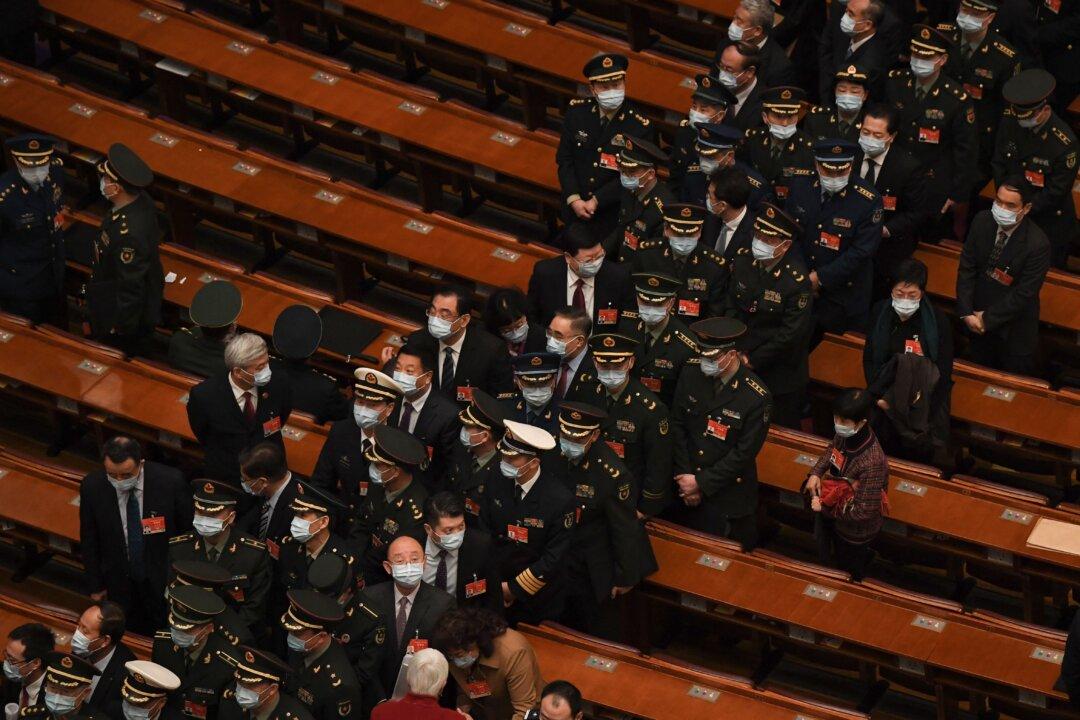Song Xue, a rear admiral and deputy chief of staff of the People’s Liberation Army (PLA) Navy was removed from his post as a delegate to the regime’s rubber-stamp legislature and suspected of “serious violation of discipline and law,” according to a notice from the Standing Committee of the legislature on April 29.
According to an article by the Beijing Youth Daily WeChat official account “Politics and Insights,” the notice stated that in the past six years, Song was the first high-ranking navy general sacked after Cheng Jie, deputy chief of staff of the North Sea Fleet of the Navy, who was put under investigation in 2015.




